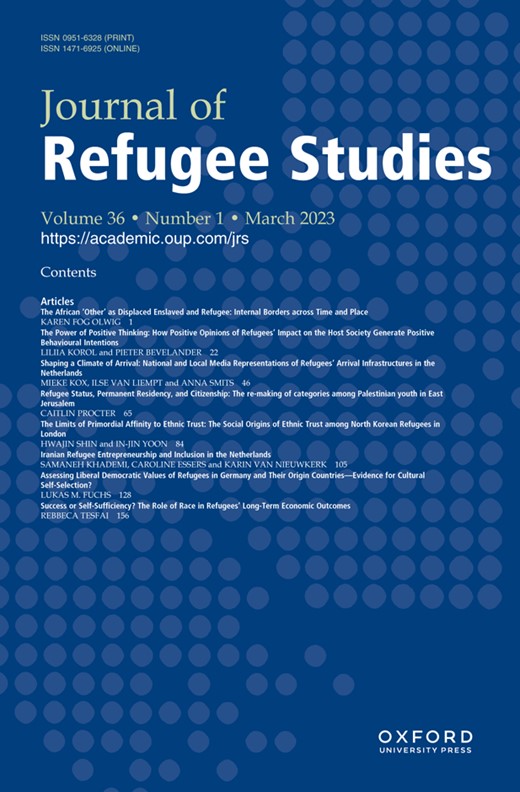-
Views
-
Cite
Cite
Rebbeca Tesfai, Success or Self-Sufficiency? The Role of Race in Refugees’ Long-Term Economic Outcomes, Journal of Refugee Studies, Volume 36, Issue 1, March 2023, Pages 156–189, https://doi.org/10.1093/jrs/feac066
Close - Share Icon Share
Abstract
The United States has always prided itself as providing safe haven to those who are persecuted. Yet, the United States did not develop policy for admitting and resettling refugees until 1980. Unlike Asians and Europeans, African refugees in the 1980s were chosen primarily based on skill, but no research thus far examines whether this strategy led to greater long-term economic success for African refugees. This article examines racial differences in refugees’ likelihood of living in poverty, receiving welfare income, engaging in full-time employment and wages between 1990 and 2019. I find that refugees show improvement in all four outcomes. African refugees, however, earn less than nearly all other groups in all time periods suggesting blocked mobility, particularly among men. Analyses focus on the 1982–1987 entry cohort of refugees who had access to more assistance than future cohorts. Consequently, these findings likely show the best-case scenario for refugees’ long-term economic outcomes.


